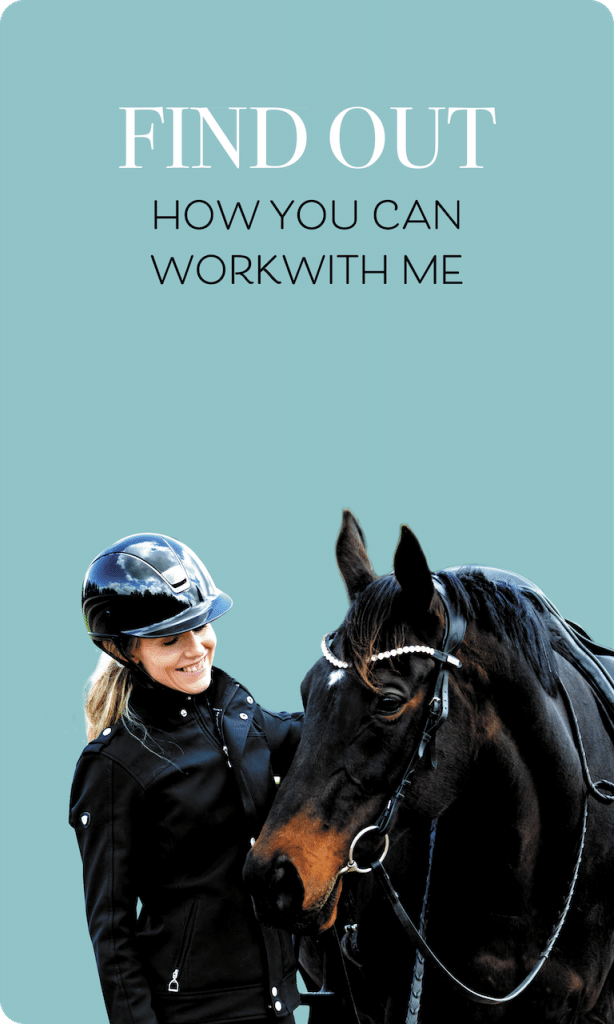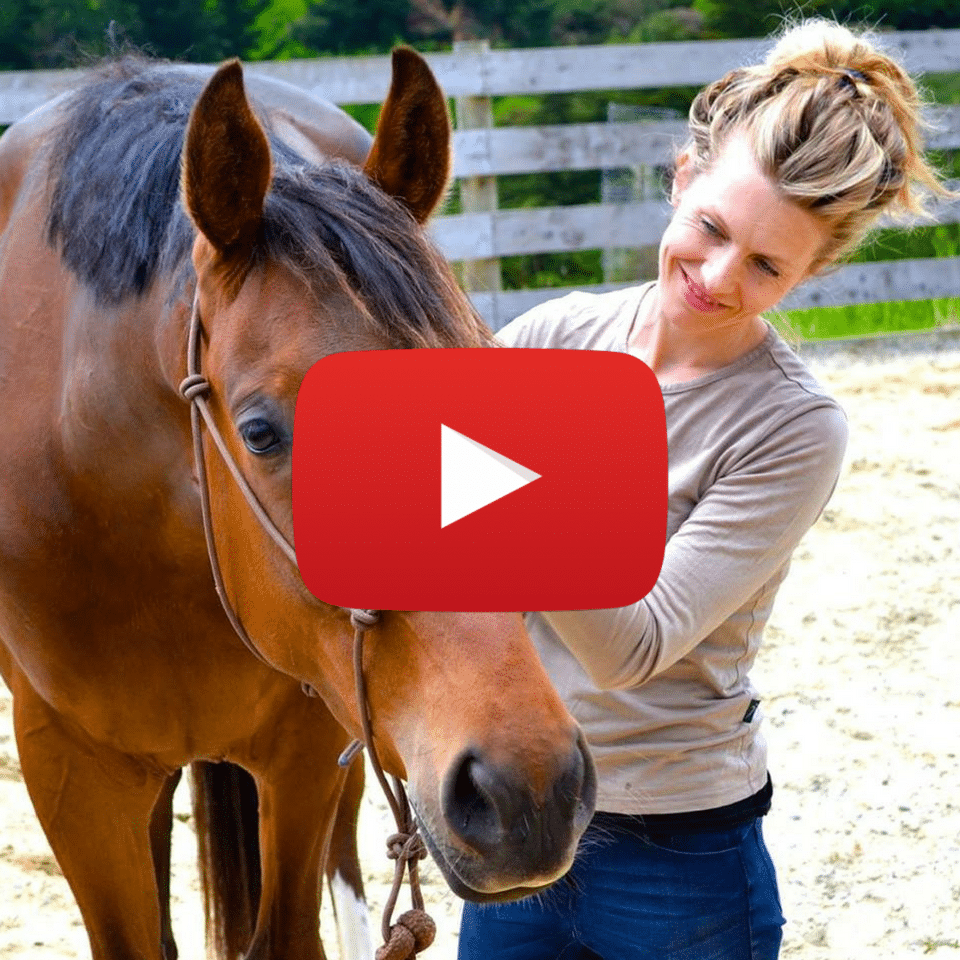A little while back, I had two experiences, very close together which changed the fabric of my world as I saw it. I came home from an overseas work trip only to wake up the next morning and find our beautiful older horse injured in the paddock. Although I hoped to be wrong, I knew immediately that it was not an experience that he would recover from. Despite being able to rationalize that he’d lived a full and happy life and was loved throughout- despite knowing what was coming- at the moment that death came, I could not escape the feeling of the air being sucked out of my body as I struggled to compose myself through the noise of my own sobbing.
Not much later, my younger horse became very ill and whilst he went on to make a full recovery, his life hung in the balance for many weeks in between. Here the grief was different- I felt swallowed not only by the potential loss of my friend, but the loss of the dreams that I held for the both of us. The fear of his death was always front of mind and despite many efforts to distract myself or focus on what I could control, I learned very quickly that grief and sadness is not a process that can be avoided, denied or suppressed. It pulses through you with an energy that will only reappear in different or undesirable ways if you attempt to control or contort it. Instead, I had to surrender to the grief and allow for it; to allow the natural process to take its course.
Change also brings its own form of grief. The loss of what was or would or could be. Grief at the loss of routine, of connection; of letting go of the attachment to things that we love and hold dear.
The experience of grief is made more bearable if we can understand that it is natural, expected and painful. From my work and own studies, I have come to understand the function of grief as something that we feel in our psyche when we are confronted with a big change. When we accept it in this way, we can then come to recognize grief in its many forms. The most obvious form is death, but we also grieve as a result of injury and trauma; in fact, any loss that represents a new reality that differs from what you have been used to can show up as an experience of grief.
The most common response to grief is one of huge loss, but at its essence, grief is a re-creation. We don’t forget what or who it is that we are grieving; instead we take them with us. The experience of grief destroys what we have come to know previously and reshapes us- if we let it- into something new and more expansive. We take forward everything that we have learned, be that from horses or humans, and apply the lessons to those who come into our path as part of the newly created present and future.
While I am respectful of the experience of grief being a very personal one, there are some common points that feel worthy of discussion that come to mind from conversations with riders who have struggled with or feel debilitated by the loss of their horse, or by grief in its many shapes and forms.
Your grief is valid
There are many stages of grief, but it’s not so much a step by step process as much as it is like being thrown in a concrete mixer- everything is happening all at once and altogether. The denial, the anger, the sadness, the acceptance, the resignation, the understanding; all conflicting and confusing and seemingly happening all within the same breath. Regardless of how things are showing up for you, your feelings are valid. They are not a sign of weakness, or failure; they are a natural response to massive change that is requiring you to reconfigure life and riding as you know it.
You have to surrender to the process
As a culture, we are “bad” at grief, change and dying. Not only are we unsure how to deal with it personally, but we are even more unsure how to deal with someone else in the midst of it. The ability to hold space for someone to go through a hard and painful emotional experience is a skill- and it’s a skill that not everyone has. As a consequence, big emotions are often shut down or glossed over because we don’t know how to “fix” it and consequently, we would rather pretend that it isn’t happening.
For those of you in a support role for someone grieving, you are not expected to fix it. You are off the hook on that one. Instead, allowing someone to experience their pain and be with them without diminishing it or disallowing it is one of the most healing and loving things you can offer someone.
What’s more, if you are in the midst of grief, you don’t expect to be fixed- and even more than that, you know that it isn’t possible. The process, however, of being allowed to grieve is an important one, and if that space is not created for you, you need to ensure that you create the space for yourself.
Lean into your grief
Suppression, denial or pretending everything is ok is intimately related to this. When others are unable to hold space for us, and we are unable to hold space for ourselves, we do not allow ourselves to cycle through the natural grief process. What you are feeling cannot be ignored, and when it is, it appears in ways that are unhealthy and unproductive. Leaning into the pain is the only way to allow yourself to be transformed by it. Pretending it isn’t there does not give you a free pass to escape the process; it will just prolong it and create a whole lot of messiness in between.
The other reason for suppression or denial is that we believe that allowing ourselves to feel our grief means something about us that we don’t want it to mean or we feel like we are falling into a hole that we may never come out of. Allowing yourself to feel the emotion does not mean that you are weak, that you lack courage or that you are a failure. It just means that you loved deeply and that you are going through a big change that demands respect and reverence.
Although it can be scary, going into the grief does not mean that you will stay in it, or that the feelings will be the same forever. It will be hard and it will be painful- that’s intrinsic to the process and something that none of us escape from- but you can and will come to the other side of it if you can give in to the reemergence of a different version of yourself. The transformation of grief happens by itself, whether or not we are willing participants.
Grief is hard work
Grieving, especially in the early stages, is a full-time job. Nothing is more time consuming than the energy that grief requires. If you are in the midst of grieving, extend to yourself the same kindnesses that you would extend to a friend or a loved one. Make time for the grieving process and give yourself the space to process and recover. You will get to the other side of it, but only as a consequence of allowing yourself to feel it.
There is a beautiful quote by Anne Lamott that says:
“You will lose someone you can’t live without, and your heart will be badly broken, and the bad news is that you never completely get over the loss of your beloved. But this is also the good news. They live forever in your broken heart that doesn’t seal back up. And you come through. It’s like having a broken leg that never heals perfectly—that still hurts when the weather gets cold, but you learn to dance with the limp.”
Here’s to learning how to dance with the limp.
❤️Jane






One thought on “The Full Embrace: Dancing With Grief”
Beautiful, thank you. I lost my husband in January this year and this lockdown has made it all very hard for myself and my family. Your words are very healing and I love the poem xx
Comments are closed.